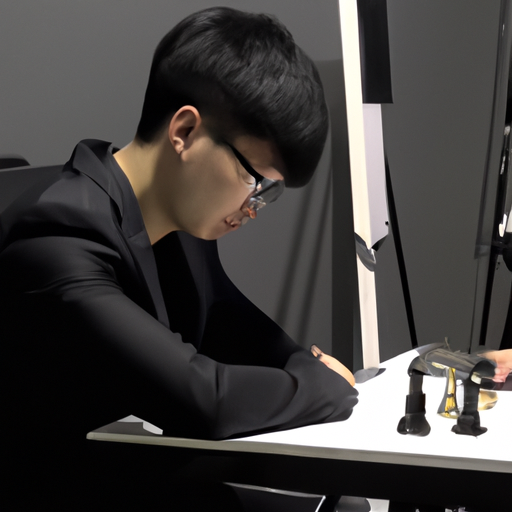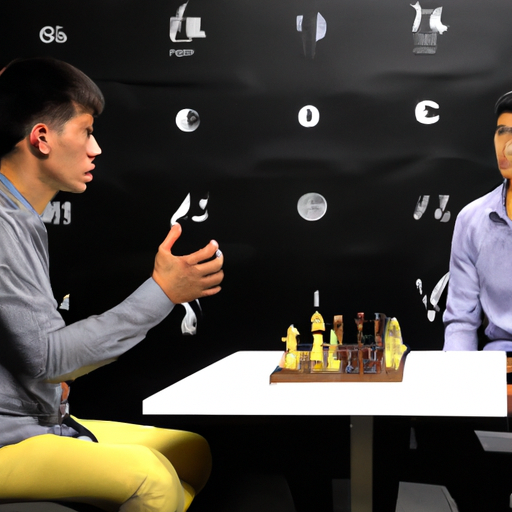Wesley So advances in Chess World Cup, deplores statements limiting PCAP

Wesley So’s Dominance in the Chess World Cup: A Closer Look
Wesley So, the Filipino-American chess grandmaster, has been making waves in the chess world with his impressive performance in the ongoing Chess World Cup. So, who is currently ranked number 9 in the world, has been showcasing his exceptional skills and strategic thinking, advancing through the rounds with ease.
In the early stages of the tournament, So faced tough opponents, but he managed to outplay them with his precise moves and deep understanding of the game. His ability to calculate variations and anticipate his opponents’ moves has been a key factor in his success so far. With each victory, So’s confidence has grown, and he has become a force to be reckoned with in the competition.
One of the most remarkable aspects of So’s performance in the Chess World Cup is his consistency. He has been able to maintain a high level of play throughout the tournament, never faltering under pressure. This consistency is a testament to his dedication and hard work, as well as his natural talent for the game. So’s ability to stay focused and composed in high-stakes situations has undoubtedly contributed to his success.
However, it is not just So’s performance in the Chess World Cup that has been making headlines. Recently, he expressed his disappointment and concern over statements made by some individuals that could potentially limit the growth and development of the Professional Chess Association of the Philippines (PCAP). So, who is a strong advocate for the promotion of chess in his home country, believes that such statements are detrimental to the sport and its players.
So firmly believes that chess should be accessible to everyone, regardless of their background or social status. He understands the power of chess to transform lives and believes that it should be embraced and supported by all. So’s passion for the game extends beyond his own success; he wants to see the sport flourish and reach new heights in the Philippines and around the world.
In light of his concerns, So has been actively involved in initiatives aimed at promoting chess and providing opportunities for young players to develop their skills. He has been a vocal supporter of chess education programs and has even established his own chess academy to nurture young talents. So’s dedication to the sport and his desire to give back to the chess community is truly commendable.
As the Chess World Cup progresses, all eyes will be on Wesley So as he continues to demonstrate his exceptional skills and strategic prowess. His dominance in the tournament is a testament to his talent and hard work, and it is clear that he is a force to be reckoned with in the world of chess.
Beyond his achievements on the chessboard, So’s advocacy for the growth and accessibility of chess is equally noteworthy. His concerns regarding statements limiting the PCAP reflect his commitment to the sport and his desire to see it thrive. So’s passion for chess and his dedication to its promotion make him not only a formidable player but also a true ambassador for the game.
In conclusion, Wesley So’s performance in the Chess World Cup has been nothing short of remarkable. His exceptional skills and strategic thinking have propelled him through the rounds, and he has emerged as a strong contender for the title. Furthermore, his advocacy for the growth and accessibility of chess demonstrates his commitment to the sport and his desire to see it flourish. Wesley So is undoubtedly a force to be reckoned with in the chess world, both on and off the board.
Analyzing Wesley So’s Strategic Moves in the Chess World Cup

Wesley So, the Filipino-American chess grandmaster, has recently made headlines with his impressive performance in the Chess World Cup. So, known for his strategic moves and analytical thinking, has been making waves in the chess community with his consistent victories. However, amidst his success, So has also expressed his disappointment over certain statements that limit the potential of the Professional Chess Association of the Philippines (PCAP).
So’s strategic moves in the Chess World Cup have been nothing short of remarkable. His ability to anticipate his opponents’ moves and plan his own accordingly has been a key factor in his victories. So’s deep understanding of the game allows him to make calculated decisions, often leading to favorable outcomes. His strategic thinking has not only impressed his opponents but has also captivated chess enthusiasts worldwide.
One of the most notable aspects of So’s gameplay is his ability to adapt to different situations. He is known for his versatility, being equally proficient in both aggressive and defensive strategies. This adaptability has proven to be a valuable asset in the Chess World Cup, where opponents come from diverse playing styles and backgrounds. So’s ability to adjust his gameplay according to his opponents’ strengths and weaknesses has undoubtedly contributed to his success in the tournament.
However, amidst his triumphs, So has expressed his disappointment over statements that limit the potential of the PCAP. The PCAP, a professional chess league in the Philippines, aims to promote and develop chess in the country. So, being a Filipino-American himself, understands the importance of nurturing local talent and providing them with opportunities to excel in the game.
So believes that statements limiting the PCAP’s potential hinder the growth of chess in the Philippines. He emphasizes the need for a supportive environment that encourages young players to pursue their passion for chess. So firmly believes that the PCAP has the potential to become a platform for aspiring Filipino chess players to showcase their skills on an international stage.
In addition to his concerns about the PCAP, So has also been vocal about the importance of promoting chess as a sport. He believes that chess should be recognized and supported just like any other sport, with proper funding and infrastructure. So’s advocacy for chess as a sport stems from his belief that it not only enhances critical thinking and problem-solving skills but also promotes discipline and perseverance.
So’s success in the Chess World Cup and his concerns about the PCAP have sparked discussions within the chess community. Many agree with So’s views, emphasizing the need for a more inclusive and supportive environment for chess players. They believe that by providing the necessary resources and opportunities, the Philippines can produce more world-class chess players like Wesley So.
In conclusion, Wesley So’s strategic moves in the Chess World Cup have been nothing short of exceptional. His ability to adapt to different playing styles and anticipate his opponents’ moves has been key to his success. However, amidst his triumphs, So has also expressed his disappointment over statements limiting the potential of the PCAP. He believes in the importance of nurturing local talent and providing them with opportunities to excel in the game. So’s success and advocacy for chess as a sport have sparked discussions within the chess community, highlighting the need for a more inclusive and supportive environment for chess players in the Philippines.
The Impact of Wesley So’s Success on the Chess World Cup Stage
Wesley So, the Filipino-American chess grandmaster, has recently made headlines with his impressive performance in the Chess World Cup. So’s success in the tournament has not only brought him personal recognition but has also had a significant impact on the chess community as a whole. However, amidst his triumph, So has expressed his disappointment over certain statements that seek to limit the potential of the Professional Chess Association of the Philippines (PCAP).
So’s journey in the Chess World Cup has been nothing short of remarkable. He has displayed exceptional skill and strategic thinking, defeating some of the world’s top players along the way. His victories have not only showcased his talent but have also brought attention to the growing prominence of Filipino chess players on the international stage.
So’s success in the Chess World Cup has had a profound impact on the chess community. It has inspired aspiring chess players, particularly in the Philippines, to pursue their dreams and strive for excellence. So’s achievements serve as a testament to the fact that with dedication, hard work, and the right opportunities, anyone can succeed in the world of chess.
However, amidst the celebration of So’s accomplishments, there have been statements made that seek to limit the potential of the PCAP. The PCAP is a professional chess league in the Philippines that aims to promote and develop the sport in the country. So, who is a strong advocate for the growth of chess in his home country, has expressed his disappointment over these statements.
So believes that the PCAP has the potential to revolutionize the chess scene in the Philippines. It provides a platform for players to compete at a professional level and gain valuable experience. By limiting the opportunities and potential of the PCAP, the growth of chess in the Philippines could be hindered, depriving talented players of the chance to showcase their skills and reach their full potential.
So’s concerns are not unfounded. The PCAP has already shown promise in its inaugural season, attracting top players and generating excitement among chess enthusiasts. It has the potential to become a breeding ground for future chess champions and elevate the status of the sport in the Philippines.
It is essential to recognize the importance of nurturing and supporting initiatives like the PCAP. By providing opportunities for players to compete at a professional level, the PCAP can help bridge the gap between amateur and professional chess in the Philippines. This, in turn, can lead to the development of a stronger and more competitive chess community.
So’s success in the Chess World Cup serves as a reminder of the immense talent and potential that exists within the Filipino chess community. It is crucial to harness this talent and provide avenues for growth and development. By supporting initiatives like the PCAP, we can create a thriving chess culture in the Philippines and produce more players who can compete on the world stage.
In conclusion, Wesley So’s success in the Chess World Cup has had a significant impact on the chess community. His achievements have inspired aspiring players and shed light on the potential of Filipino chess players. However, it is important to address the statements that seek to limit the potential of the PCAP. By supporting initiatives like the PCAP, we can foster the growth of chess in the Philippines and create a brighter future for the sport.

